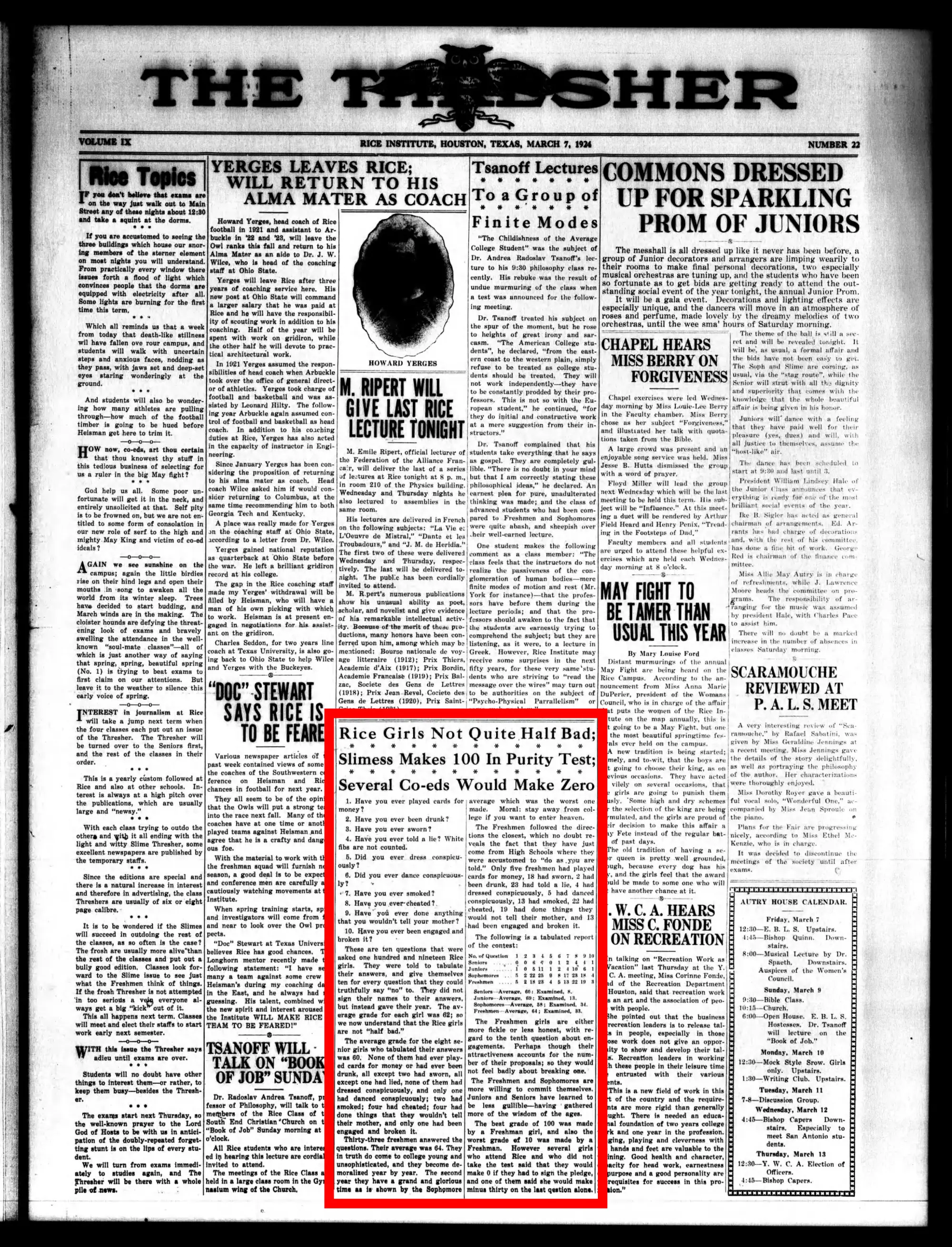
is the original 10 questions version of the Rice Purity Test.
It was first created in 1924 at Rice University as a lighthearted survey for incoming female freshmen. The original version featured only ten questions focused on mild social and moral behaviors, such as cheating or breaking an engagement. It was designed to help students open up, bond, and reflect on their personal experiences.
Select "Yes" if you've done this before.
 The Original 10-question Rice Purity Test in the Rice Thresher newspaper in 1924.Read theoriginal article.
The Original 10-question Rice Purity Test in the Rice Thresher newspaper in 1924.Read theoriginal article.
The Rice Purity Test is a self-scored, informal survey of 100 yes/no items that reflect common life experiences spanning relationships, sexuality, substances and minor mischief. Originating at Rice University in 1924, it evolved through student culture and later spread online worldwide. Your score is not a judgment or diagnosis—it’s a lighthearted snapshot meant for reflection and conversation, not a checklist.
Your purity score is calculated by subtracting the number of 'yes' answers from 100, then converting to a percentage. A higher score indicates fewer experiences, while a lower score suggests more diverse life experiences.
Scores range from 0-100, where higher scores indicate fewer life experiences. However, the score is not a measure of morality or character—it's simply a reflection of your personal experiences and choices.
Yes! Many people retake the test periodically to see how their experiences and perspectives change over time. It can be a meaningful way to reflect on personal growth and life changes.
While originally created for college students, the test is now taken by people of various ages and backgrounds who are curious about this cultural phenomenon and want to reflect on their life experiences.
The Rice Purity Test is primarily for entertainment and self-reflection, often with a humorous or provocative undertone. While it can offer a snapshot of your experiences, it should never be considered a serious assessment of character, morality, or personal worth.
It's perfectly normal to feel uncomfortable with certain questions. You can skip questions you're not comfortable answering, or simply answer 'no' if you prefer. The test is meant to be a personal reflection tool.
The test typically takes 10-15 minutes to complete, depending on how much time you spend reflecting on each question. There's no time limit, so take your time and be honest with yourself.
Yes, your score and answers are completely private. The test is designed for personal reflection, and no data is stored or shared with others.
The Rice Purity Test is widely considered the original and most recognized version, having originated at Rice University. While many similar 'purity tests' exist, this version aims to maintain the spirit and question style of the informal survey that started the phenomenon.
Yes, your privacy is protected. Your answers, score, avatar, and name are processed locally in your browser and are never sent to our servers. For extra privacy, you can disconnect from the internet before taking the test or generating personalized images. We only collect anonymous usage analytics to improve the user experience.